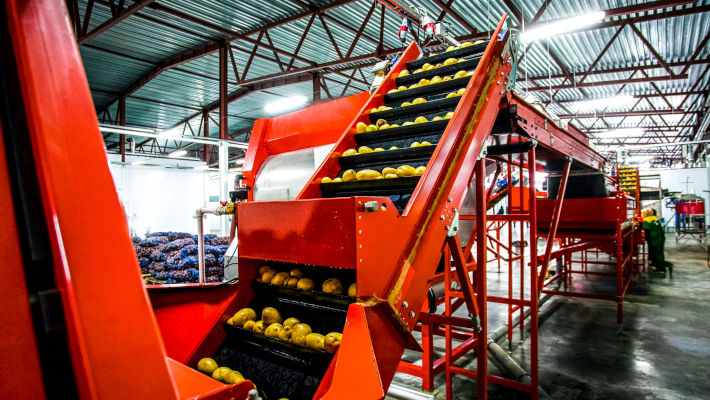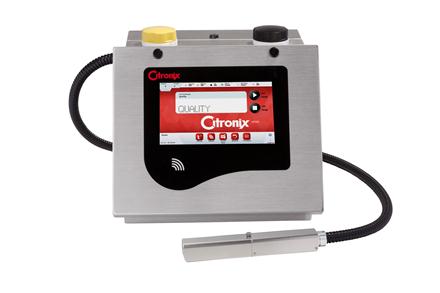Food product traceability
Everything started with potatoes which then led to onions and then carrots. Soon, it will be turnips and beets. Every year, a new crop is affected by the tightening of food traceability standards and regulations issued by the Canada Food Inspection Agency (CFIA). This requires growers to mark their products so as to be traceable, from field to table.
The movement is far from useless: it is an advantage for the consumer as well as for the grower. Consumer confidence is reinforced and growers can limit losses in the case of a recall.

Marking has become increasingly complex over the years to keep up with the changing traceability standards. The key is choosing versatile equipment.
Data necessary for food traceability
Food is a category that is very broad and includes many things, from fresh produce (tomatoes, potatoes) to packaged products (bags of potato chips, jam) and drinks (beer, juice).
Depending on the food product and your role in its life cycle, follow-up or traceability data is necessary. A few examples are as follows:
- Food name
- Unique food identifier
- Name & address of each location the food has been handled (cultivated, packaged, transformed, etc.)
- All transfer dates from one entity to the next
To learn about traceability requirements for your production, review regulation details in Canada or try the interactive tool from the Canadian Food Inspection Agency. To learn about traceability requirements in the United States, contact us.
Adapting to the industry's changing traceability standards
Marking has become increasingly complex over the years to keep up with the changing traceability standards. The key is choosing versatile equipment.
Easily modifiable messages, codes & data
Most agri-food companies use continuous ink-jet marking systems for their products because it is among the fastest, most affordable in terms of production costs and adapts perfectly to any kind of use.
The codes and data printed by these marking systems can be easily changed either manually or automatically. We can also push the systems a bit further by adding artificial intelligence and connecting them to automatons that control the messages to be printed. This kind of adaptive system allows you to increase productivity and efficiency along your production lines when regulations or processes change.

To facilitate food product labeling, marking and packaging, we often partner with specialized companies in order to offer turnkey services.
Turnkey & partnership food labeling solution
We have a lot of clients in the agri-food industry, in sectors such as beer, chocolate, maple syrup, honey and sauces to name a few. To facilitate in the labeling, marking and packaging of their food products, we often partner with specialized companies in order to offer turnkey services.
For example, we have created a partnership with Elnova in order to offer integrated solutions that combine product bottling and labeling with our ink-key printing systems for labeling beer, wine, cider and other beverage bottles. This association allows our clients working in this sector to have just one supplier offering all their specialized equipment and benefit from their distinctive service offering.